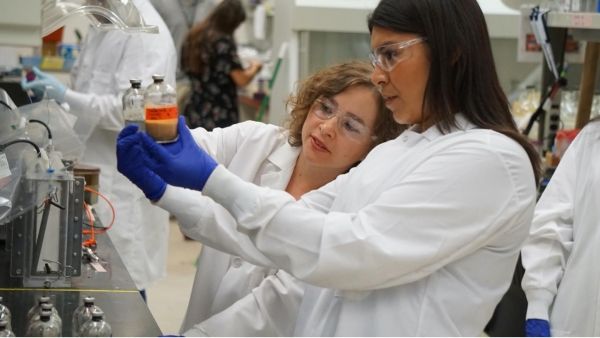Ancient alchemists dreamed of transforming base materials like lead into gold and other valuable commodities. While such efforts generally came to naught, researchers today are having some success in extracting a variety of useful products like aviation fuels, lubricants, solvents, food additives and plastics from organic waste.
The trick is accomplished with the aid of specialized bacteria, whose metabolic activities can convert simpler chemicals into useful products through a microbial growth process knows as chain elongation.
Anca Delgado, a researcher in the Biodesign Swette Center for Environmental Biotechnology at Arizona State University, has been exploring the phenomenon. In a new study, she describes for the first time how the chain elongation processes are carried out by microorganisms under normal conditions in soil.
Read more at Arizona State University
Image: Anca Delgado (left) and Aide Robles are researchers in the Biodesign Swette Center for Environmental Biotechnology. Delgado is also an assistant professor in ASU's School of Sustainable Engineering and the Built Environment. (Credit: The Biodesign Institute at Arizona State University)


